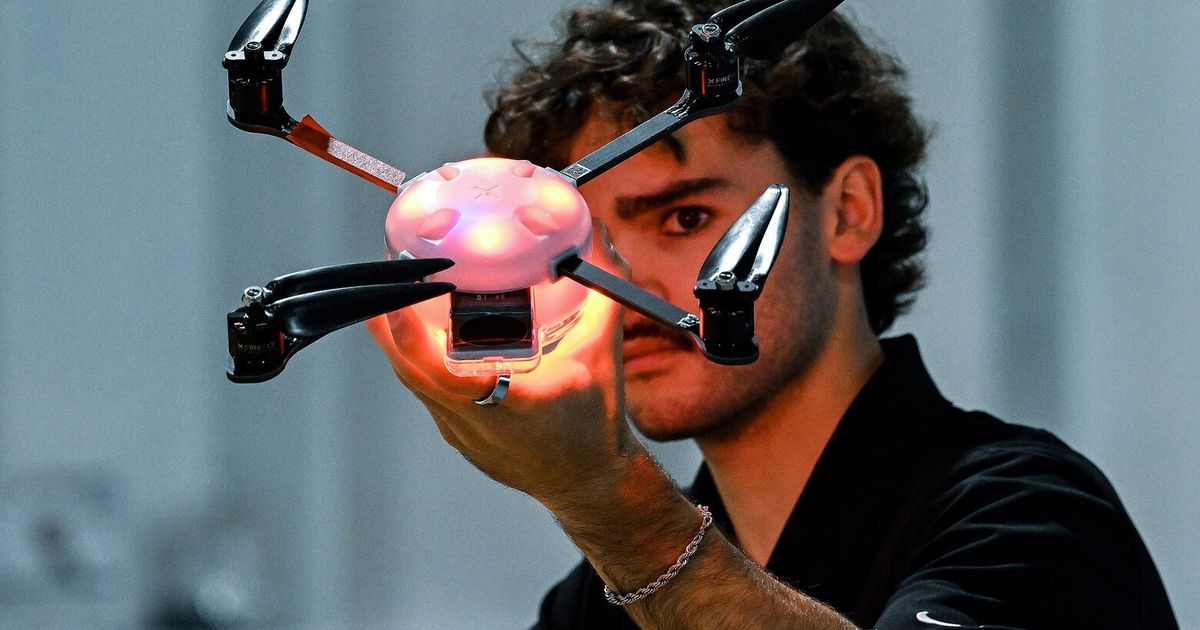Summary:
Defense tech startups like Swarm and Anduril are reviving manufacturing in former industrial hubs across the Midwest and Northeast.
Companies are drawn by local talent, cheap labor, and state incentives, creating jobs and boosting local economies.
Political support from figures like President Trump emphasizes domestic manufacturing for national security, with restrictions on foreign imports.
Startups leverage existing infrastructure and skilled workforces, such as Rhode Island's boatbuilding heritage for Regent's sea gliders.
Despite challenges like supply chain complexities, success stories show rapid growth, with Swarm expanding to a full factory and securing military contracts.
The Revival of Industrial Heartlands
In Auburn Hills, Michigan, a once-vacant factory surrounded by empty warehouses in America's auto industry heartland has been brought back to life. Swarm Defense Technologies moved into an 8,000-square-foot section last year to manufacture drones for defense. Rapid demand growth led them to take over the entire 14,000-square-foot facility by this summer.
Today, 47 employees work in the cavernous space, producing thousands of drones monthly for the U.S. military and other clients. These drones, just over 10 inches long and under 2 pounds, are used to test anti-drone systems and simulate attacks, turning the factory into a hub of activity in an area dotted with "For lease" signs.
Kyle Dorosz, 33, co-founder of Swarm, noted the huge demand for such drones and how making them in this location "feels right," as it's "in the DNA of this place."
A Broader Trend in Defense Tech Manufacturing
Swarm is part of a larger movement where hundreds of defense technology companies are revitalizing manufacturing in once-vibrant industrial cities across the Midwest and Northeast. Drawn by local talent, cheap labor, and state cash incentives, these firms are building future weapons in old factories or constructing state-of-the-art sites in states like Michigan, Ohio, Pennsylvania, Rhode Island, and Delaware.
In January, Anduril, an AI-backed weapons manufacturer, announced a $1 billion factory in Ohio for drones and other AI-enabled weapons, with additional plans for Rhode Island and Mississippi. Regent, a shipbuilding startup, is building a factory in Rhode Island for electric sea gliders for military use, while UXV Technologies, a Danish drone and robotics company, opened a facility in Pennsylvania last year.
Political and Economic Drivers
The locations of these factories are not only good for business but also align with political agendas. President Donald Trump has promoted domestic manufacturing, imposed tariffs on imports, and restricted military purchases from foreign adversaries like China. State lawmakers are eager to attract defense tech firms to create jobs and boost local economies.
Sen. Jon Husted, R-Ohio, emphasized that "America is waking up to the fact that our national security depends on making more stuff in America," highlighting Ohio's manufacturing competency. Christian Garrett, an investor at 137 Ventures, which backs companies like Anduril and Palantir, advised startups to build in industrial towns to gain favor with the federal government and military, noting that the government sees this as bringing valuable jobs to these states.
Workforce and Infrastructure Advantages
Despite advances in AI and autonomous systems reducing the need for massive labor forces, these companies can train workers in transferable tech skills. Zachary Mears, Anduril's senior vice president of strategy, cited Ohio's $310 million grant and tax-incentive package, workforce access, existing infrastructure, and logistics as key reasons for their expansion. The new 5 million-square-foot modular facility, set for completion early next year, will employ 4,000 people.
Billy Thalheimer, CEO of Regent, chose Rhode Island for its boatbuilding heritage, making it a "mecca" for talent and more affordable than relocating experts. Maddie Macfarlane, a former Navy officer, joined Regent for its Rhode Island location and defense-focused mission, noting the skilled workers and proximity to the Naval War College as advantages.
Challenges and Success Stories
Aaron Slodov, CEO of Atomic Industries, cautioned that building in former industrial towns requires time and long-term planning due to supply chain complexities and volume manufacturing hurdles. However, Swarm's success serves as a case study. Founded in 2017 as Firefly for drone light shows, it pivoted to defense last year, renaming to Swarm and converting an old Qualcomm chip factory with help from local welders and assembly line experts.
The Army, Air Force, and Navy now purchase Swarm's drones, each taking less than five minutes to produce, while the company continues making drones for entertainment. Dorosz highlighted the local connection, with nearly every employee having family ties to nearby auto assembly lines, underscoring the revival's personal impact.








Comments